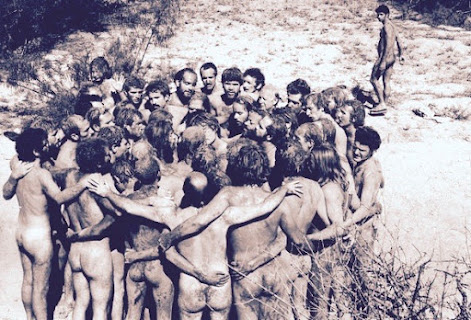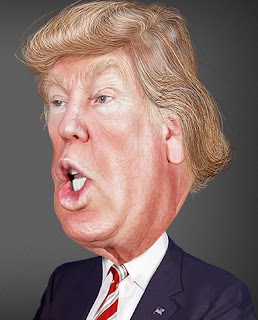Nascent sexuality and its ‘correction’….
When I was a child I hung out a lot with my sister. I liked the company of girls. Boys were strange aggressive creatures who obsessed over cars and football. Together with my sister and her friends I found men to be mysteriously attractive.
The boys no doubt saw me as a lisping sissy who played with the girls, cried easily, danced, skipped, skated, couldn't kick a football and threw like a girl!
In primary school all the boys wore shorts and one day a sexually precocious girl taught us how to play a secret game called ‘nervous’ which started with the girls touching the boys on the inside of the knee and then slowly inching it up their inner thighs asking all the time ‘Are you nervous yet?’ The boldest among us would allow the finger to pass under the hem of our shorts, pass inside our underpants, move onto our scrotum and then finally allow a whole hand to grasp our little prepubescent willies. It felt amaaazing! I quickly adapted the game so I could play it with my classmate Michael, under the desk during maths lessons, and with my friend Benny, in the shallow end of the swimming pool.
My dad was a Scout leader and this meant, as a family, we’d go on camping holidays with scores of horny adolescent lads. I remember, at the tender age of 9 being adopted by Kestrel patrol - a gang of 7 teenagers who, upon realising I didn't actually know the answer to the question ‘Do you know how you were born?’ took it upon themselves to educate me into all the elaborate ins and outs of sex as they understood it. This included stories of boys wanking behind their desk at the back of the classroom and being able to ejaculate ‘spunk’ more than six desks in front of them. Someone they knew had been born as a result of ruptured Durex or ‘Johnny Bag’ which was known as ‘Being born on a bursted Johnny’. There was also talk of ‘Homos’ and ‘Lesbos’ and a clear message that none of this was acceptable. Nevertheless all this talk from man-boys with deep voices, prominent Adams apples, hairy armpits and athletic physiques firmly cemented my erotic curiosity in the direction of male secondary sexual characteristics and made it all a deliciously irresistible forbidden bowl of fruit.
As I hit my teens the boys in secondary school started to violently police the behaviour of the boys they identified as different. This involved constant name calling, pushing, shoving, kicking and shaming. Making sure they knew they had been clocked and excluded from the possibility of any sort of social connection.
Once this started my preservation instinct kicked in and I rapidly learned to perform the correct code of conduct. Not backing down from a fight instigated by the accusation of being 'a puff’ saved me from closer scrutiny. Then, to further develop my laddish credentials I would hang out with the smokers by the bike sheds pretending to be interested in their sex talk of fondling, fingering and shagging. I even started dating girls with the sole purpose of making conquests I could subsequently brag about.
There were some boys who were very gentle and softly spoken. They seemed unwilling or unable to behave in acceptably masculine ways. They were mercilessly punished on a daily basis. I didn't bully them myself but watched on as it happened, fearing that defending them would blow my cover and I'd end up having to suffer the same fate.
Nascent gender performativity and its ‘correction’…
In 1960, the working class world I was born into knew nothing beyond a very strictly policed gender binary. I had a penis so I was a boy-simples! But I was a girly boy. I wished I could be a mother and become a housewife. It made me sad that this option wasn’t open to me. I envied girls and their ability to attract sexy men. I wanted to wear makeup and once dusted my face with some foundation powder from a discarded compact of my mothers. My dad noticed immediately “Wash that muck off your face!’ A few months later I patted a bit of talcum powder on my cheeks then forgot about it. Again my dad spotted it and with disgust said ‘What have you done to your face? Wash it off and don’t let me ever see you do that kind of thing again!”
So I was efficiently detected as a potential gender transgressor and rapidly knocked back into line. I quickly learned that some of my speech patterns, mannerisms and gestures could be identified by others as ‘girly’ and were therefore potentially dangerous signifiers of differentness. I felt this girlishness was somehow related to my secret attraction towards men and so for the sake of my social survival it needed to be eradicated from how I presented myself to the world.
Thus began the extended performance of a macho-ish false self. The voice had to be lower and gruff with no squeals or screeches. Hands had to be anchored in pockets. The walk became a cocky lolling swagger with a man-spreading gait suggestive of a need to avoid scissoring an imaginary pair of big balls between upper thighs. I was pretty convincing to the point that I almost believed it myself! Even beyond the age of 20 when I came out as gay, the straight-acting-ness was firmly ingrained and would remain so until met the Faeries.
Then, at the age of 49 I put on a wig, a dress and some make-up. It was such a transformation that no-one seemed to recognise me. A part of me that had been frozen began to thaw out. This presentation of me wasn’t seen by the Faeries as disgusting but was celebrated and appreciated. What a relief it was to no longer be policing myself, to be allowing free reign to any whim or style of being without fear of reprimand.
But then it got complicated, some of the presentations of my repressed femininity could seem like a caricature or a parody of womanly behaviour and thus I noticed a potential to cause offence to female and trans faeries. The enjoyment I experienced in allowing my cis-male programmed behaviours to recede led me to wonder about my gender identity. Sadly when I dared to consider that I might be trans*, the young trans Faeries shook their heads seeing me as too cis-seeming.
So, now at the grand old age of 60 I know I’m not a conventional gay-cis-male. Within a cis/trans spectrum I tend to get pushed away from the trans end. And within a Gay/Bi/Straight spectrum I’m experientially fairly gay even though in my youth I did engage in faux-straight sexual activities.
There’s certainly something odd about my gender so I tend to describe it as ‘cissish’ and when it comes to pronouns, I do tend to be referred to as ‘he’ but generally I prefer to be seen in all my plurality as ‘they’!
I reckon that the oppressive policing of my gender and sexuality has wounded me pretty deeply. I've had to work hard to find at least a degree of healing from all of this.
I’m wondering if, for some who have experienced a similar kind of wounding, when it doesn't, for whatever reason, get fully processed can it kind of manifest itself as an ‘identification with the aggressor’ and does it then present itself as misogyny and transphobia?
I know that whenever I detect misogyny or transphobia directed towards others it presses on the memory of my own oppression and I feel a twinge of pain from those suffocating 40 years of self policing









